Ardent
AH enthusiast
http://www.morrisonarms.com/2015/06/why-hunt-an-honest-reintroduction-to-our-oldest-pursuit/

An approximately 8,000 year old basalt biface fragment unearthed on an archaeology dig I took part in, 2007 British Columbia interior.
Preface
This is an article I’ve been meaning to write for years, I have always been afraid of it however. This regards my passion, and many misunderstandings of it, and the risk that I go off the proverbial deep end and put my readers to sleep is high. I’ve done it so many times in personal conversation that I suppose the risk is worth taking. Perhaps ten percent of you will make it to the end of this, and I promise you that you will have learned something. I also hope, agree or disagree, you will find something in it worth discussing. Maybe, just maybe one or two of you might even rediscover something in yourself, not through my words but through your own thoughts that hopefully a handful of words can ignite… or reignite, from a depth and personal history you may not realize exists in you.

Now one cannot presume to introduce another to hunting, for all of us have a lineage in hunting millions of years deep, that many have only just recently lost touch with. Hunting is in fact the basis of our success as a species, and fueled the biological development of our highly active brains. Who played hide and seek as a child, feeling the thrill of finding your quarry in the bushes? Or the excitement of tippy-toeing up on a sibling and spooking them? Those are hunting honed instincts, just as a cat instinctively chases a toy, we have play-hunted without knowing it since before our memories took hold. Why are our eyes on the front of our head, like cats and wolves, and not to the sides like horses and deer? We are predators, purpose built to focus our attention in one direction on our quarry, rather than the constant full circle scene surveying arrangement of prey animals like the deer. Now I’ll do my best to share hunting with those unfamiliar in the light it really should be seen in, not what is often portrayed in the media, many times by hunting’s own highest profile want-to-be celebrities who often do more harm than good. Just as there are drivers I’d rather not see on the road, so too there are hunters I’d rather not see in the field, or on the TV. Neither means we ought to stop driving, or hunting.
To be clear, I have the upmost respect for vegetarians and vegans that live their beliefs, the beautiful thing about our advanced societies is many live in a world of freedom and choice. I can understand that some find any death completely distasteful; though I must remind them kindly there is not a human alive who does not owe their very existence to hunting. Furthermore, everything dies, and contrary to Disney, those endings in nature do not arrive on a bed of lilies in old age. Now back to the point, we’ve evolved, to be sure and I’ll address this point as it is the most common counter argument to hunting, that being perhaps it is no longer necessary. I ask you to visit a commercial farm, where your meat, shoes, belts, eggs, cheese, milk, cotton, or even your vegetables comes from, and rationalize if this is truly a better way. If you wear runners and Lulu Lemon, visit an oil refinery. Introduced, non-native species are cultivated on land cleared of forests and their natural species in highly industrialized, rather brutal conditions to produce animal and plant food products just as an assembly line produces cars. This is somehow being touted as morally superior to hunting and hunters. I find it sad, and if I had less concern and more humour I might find it amusing, when I’m criticized for being in the hunting industry from the keyboard of computer produced with rare earth metals, mined by environmentally catastrophic methods in central Africa destroying wildlife. To make matters worse, the hate mail originates from inside the walls of a structure fabricated of the sawn carcasses of forests, on a computer powered by coal or dams, and on land stolen from wildlife; indeed all our cities at one time belonged long before people to wildlife. How many animals have our urban areas, farms, mining, logging, airline travel, cars, vineyards, coffee plantations, and energy generation killed?

The number is innumerable, exponentially greater than all hunting combined. And that is ok. I am a realist. I recognize I appreciate a home, and the sacrifices required to have one, even if all I truly deserve is a tent. We cannot possibly hope to feed everyone today from hunting and gathering, with the current population and consumption rates. I have a good job flying helicopters, that supports my passion of hunting, and that too I can rationalize in its trade offs. I water a garden of largely non-native flowers that I don’t truly need, eat farmed as well as natural food, doing my best to support local products and reduce transport, and that too is ok. This set of comfortable human conditions is also where the trouble starts for hunting, we are veiled, completely shut out from the realities of what our lifestyles mean for the world and wildlife. When you eat a burger, you are purposefully sheltered as much as possible from the realities of how it was made. Who would order if cigarette package style warning labels with slaughterhouse and feedlot photos graced our menus? This disconnect is tragic, and one of the most admirable traits I find in hunters is this disconnect doesn’t exist. They’ve seen where food comes from, how it is made, and the sacrifices. They’ve witnessed and better yet become part of the cycle of harvest and production right from its most humble, natural roots. This is a point I’d like to take an opportunity to extend an appreciative thanks to a group I never thought I could find a common ground amongst; hipsters and “Greenies”.

It seems one of the fastest growing segments today of hunters is young, educated urbanites, who have come to realize it is morally preferable to remove a mature animal from a natural setting, given proper consideration to conservation and sustainable quotas, than to consume protein from an industrial farm. Soon I’ll explain how properly targeted hunting actually improves a species’ health and viability, a concept that seems far fetched until it is explained. Those of us who grew up around commercial farming have seen the darker side of the protein source debate first hand, as well. Since this reenvisioning of hunting is already occurring, admittedly to my grateful surprise, why bother to write this article? Well there is an awful lot left to explain, as I see nearly daily in the comments I reject on my website and youtube videos suggesting everything from gutting my family to more polite shock that hunting is even permitted in places like Africa. African wildlife is under pressure, right? I just mentioned it in reference to the rare earth metals mines earlier in this very article myself. Yes. Hunting them therefore must be asinine then, no? Wrong. One of the best things happening for wildlife in Africa today is hunting. Before you brush me off as a biased, industry owned snake all I ask is you finish the article, you won’t regret it and will likely find yourself surprised. The reasoning is simple, the results proven and undeniable, and the considerations will turn everything you thought you knew on its head. I promise.

Take the White Rhinoceros, as is occurring again, a flare up in poaching is threatening a species that nearly recovered. Here is also an opportunity to examine poaching versus hunting, two very different considerations. Poaching is the straight, wasteful killing of an animal, without due consideration to conservation, selective harvest for mature males, or seasons to balance and regulate pressure. Hunting has actually greatly increased the numbers of White Rhino, by creating a value in maintaining private land outside the parks for the White Rhinoceros and other species instead of simply replacing it with cattle ranches, as has happened in much of Africa. The value of Rhino to hunters has undeniably created an interest in sustainability, to prevent the industry collapsing in the future, and the meat is literally scraped to the last ounce by the local populations who need protein more than any others. The meat is being provided, as with cattle, however the land and endemic species are being preserved in their natural state unlike the cattle ranch, and the Rhino is far more valuable than cattle with six-figure range hunt fees. Ultimately the hunting of this rare species is providing habitat, an interest and motivation to maintain healthy populations, and excellent financial benefits to regions that may otherwise turn to uncontrolled poaching for horn and tusk with no sustainability or future except a dust-blown cattle ranch.

Below is a photo of a dividing line between two areas of South Africa, in the Kalahari. The greener side on the right is a natural game inhabited hunting area; the dreaded “canned” or fenced hunt so vilified in the media, and sadly even amongst hunters through lack of understanding. The beaten down area on the left is the alternative, a cattle ranch. The local populations need to make a living and it WILL be one or the other as no other industry is possible here. Most morally would support the cattle ranch as a wholesome activity and use of land, and deplore the fenced hunting area, despite being larger than nearly any area unfenced hunters in North America will frequent on a hunt at typically tens of thousands of acres and beyond. The Whitetail hunters watching farmer’s fields and brush rows who oppose “high fence hunting” need to realize it is typically more free than the farmed areas they hunt, and more wild to boot. The fences are there largely to protect the great investment of effort the animals inside represent, and more than anything protect the natural species inside from the outside, rather than assist the hunters inside. Would you be the one to legislate destroying all the natural species behind the fences of the hunting area, and prescribing that somehow the ranch that wipes them out and replaces them with non-native cattle is superior? I implore you to remember everything dies, and it’s not an ugly thing to support such an area full of a wealth of natural species just because they are hunted. The cattle die too, and with them ALL of the natural fauna and much of the flora.

Now to further explore sustainable harvest, as we know in humans the females are the better part of the species; and as long as my wife doesn’t read this I’ll admit this is true. In most species, the harvest of mature males is not a loss to the breeding capacity as one male can and does breed multiple females. Removing a dominant male can actually improve herd health and has been scientifically proven to do so, by introducing new breeding genetics as younger males breed for the first time, having been held off by the mature males who often are the only ones to mate. In what is to humans ancient history, when herds grew without bounds and unlimited resources, this was a natural population limiter that today can do more harm than good. In some species, males can even over mature and hold off the next generation of males for a long time after they’ve become impotent or it’s near equivalent by breeding less actively themselves. On the other side of the coin, the limited habitat and truncated areas caused by human activity can for other species cause them to outbreed their resources in area, water, and food. This is when the harvest of females and young can be well advised, as occurs in many species when a population decrease is desired such as during the Chronic Wasting Disease epidemic in Canadian and American deer populations. These balances are maintained, researched and funded by hunters fees.

Now for a polarizing species close to home the Grizzly Bear, which I hunt along with Mountain Goats as an outfitter on the North Coast of British Columbia and will be guiding hunts for this fall. Mature, and over mature males will quite brutally kill those cute bear cubs as a natural population control, not the picture that most envision. There is nothing wrong with this, just as there is nothing wrong with hunting those mature males, nature is simply far more harsh than most understand. Removing these males can actually increase the numbers of bears, this isn’t industry propaganda but well understood science used by biologists with the BC government to maintain the health of the population. Building an industry that works in conjunction with government and proper management to selectively harvest mature individuals can not only benefit the species, it creates an industry developing strong economic benefit off what… an intact ecosystem and nature. Hunting areas like mine are vehemently opposed to oil tankers, mines, unsustainable logging and habitat degradation and go to court to oppose it. You’ve just been introduced without knowing it to the oft attacked “trophy hunting”, which is in reality one of the greenest industries on earth. “Trophy hunting”, should more appropriately likely be referred to as hyper-selective hunting, as the hunters are after mature males, the exact animals that when selected can work to maintain the vitality and health of the species. Just because you find death distasteful, as all of us do, does not mean hunting should stop. The “natural death” is far more severe for the mature males than being hunted, and I’ve seen it. Typically, an old bear with rotten teeth will starve to death and the birds will start picking holes in his side before he’s even truly gone. The run up to it can last months, and is a terrible thing to see. Again, this is Mother Nature, a beautifully harsh Master, and again there is nothing wrong with that; just as there is nothing wrong with or unnatural about hunting. In fact compared to most of our modern pursuits, including us sitting in front of these screens, it is exceedingly natural.

Back to poaching, and what was called hunting in such times as the late 19th and early 20th centuries before an understanding of conservation was studied and developed that set the stage for much of the negative light hunting today receives. That era of unchecked, unmanaged harvest was pure and simple poaching. Often viewed romantically, and I risk offending some here but I’m forced to be honest, massive shooting expeditions in the “heyday” of African hunting were as we know today unsustainable, and unknowingly at the time shared much with the uncontrolled poaching we see today. Teddy Roosevelt, one of the icons of modern conservation participated in just such a shooting expedition for the Smithsonian, so let me clarify. They didn’t know any differently, the resource appeared infinite, troubles and friction between locals and wildlife were rife, and several of these men swung completely after their experiences to become some of the most ardent conservationists the world has known, Mr. Roosevelt included though he began well before his Safaris. He spearheaded the modern selective harvest that brought many species back from historic lows. From the National Parks Service, “After he became President in 1901, Roosevelt used his authority to protect wildlife and public lands by creating the U.S. Forest Service and establishing 51 Federal Bird Reservations, 4 National Game Preserves, 150 National Forests, 5 National Parks”, and he ultimately protected 230,000,000 acres of public lands to become known as the Conservationist President. Another, far less known name, one of whom’s books sits beside me is Jim Corbett. Mr. Corbett cut his teeth as a hunter of man-eaters in India, and an honest one called on in times of crisis by the government, not the type that miraculously came home with the story. Ultimately, he too turned ardent conservationist with what he witnessed, instrumental in forming the 520 square kilometer Jim Corbett National Park in India to protect the Bengal Tiger.

It is these ethos modern hunters largely do, and should follow, not TV celebrities hawking camo Under Armour. I know for myself hunting is my absolute passion, and it having been talked disparagingly of in my family it often felt like a dirty interest for many years. Once old enough to thoroughly research its ins and outs, I was able to make up my own mind, and decide how it related to my own life. Since I was a boy, an undeniable urge to hunt and fish has resided within me, absolute instinct. I positively love the wilds, the animals especially the large and iconic ones, and I would be crushed to see them gone as they are in so many urban settings and a surrounding large swath… oddly where most of my most severe critics reside. My love for the wilds is entwined with my desire to be part of them, and hunting is as natural a part as can be rationalized. One must remember as alluded to earlier, there are no happy endings in nature, Mother Nature is a stern, unforgiving entity that yields no compassion, following one simple and noble rule; Everything Becomes Something Else. The bear cub killed by the large male feeds other bears, eagles, wolves, and a slough of smaller species down to the insects. The salmon pulled from the stream feed first the bears, and then the birds, and then the giant trees as fertilizer. The hunter feeds his family, and the locals with his meat, the guts and refuse going back into the natural system. We can be part of this system, and intelligently so as to actually see benefits from maintaining the wilds. Hunters and fishermen in the field, and outfitters and guides doing business are one of the strongest arguments for preserving unprotected government land from industrial use and development. The hunter is Mother Nature’s ally, not her adversary as so often portrayed. I thank you for your attention in reading.
-Angus Morrison
Wild Coast Outfitters
angus@wildcoastoutfitters.com


An approximately 8,000 year old basalt biface fragment unearthed on an archaeology dig I took part in, 2007 British Columbia interior.
Preface
This is an article I’ve been meaning to write for years, I have always been afraid of it however. This regards my passion, and many misunderstandings of it, and the risk that I go off the proverbial deep end and put my readers to sleep is high. I’ve done it so many times in personal conversation that I suppose the risk is worth taking. Perhaps ten percent of you will make it to the end of this, and I promise you that you will have learned something. I also hope, agree or disagree, you will find something in it worth discussing. Maybe, just maybe one or two of you might even rediscover something in yourself, not through my words but through your own thoughts that hopefully a handful of words can ignite… or reignite, from a depth and personal history you may not realize exists in you.

Now one cannot presume to introduce another to hunting, for all of us have a lineage in hunting millions of years deep, that many have only just recently lost touch with. Hunting is in fact the basis of our success as a species, and fueled the biological development of our highly active brains. Who played hide and seek as a child, feeling the thrill of finding your quarry in the bushes? Or the excitement of tippy-toeing up on a sibling and spooking them? Those are hunting honed instincts, just as a cat instinctively chases a toy, we have play-hunted without knowing it since before our memories took hold. Why are our eyes on the front of our head, like cats and wolves, and not to the sides like horses and deer? We are predators, purpose built to focus our attention in one direction on our quarry, rather than the constant full circle scene surveying arrangement of prey animals like the deer. Now I’ll do my best to share hunting with those unfamiliar in the light it really should be seen in, not what is often portrayed in the media, many times by hunting’s own highest profile want-to-be celebrities who often do more harm than good. Just as there are drivers I’d rather not see on the road, so too there are hunters I’d rather not see in the field, or on the TV. Neither means we ought to stop driving, or hunting.
To be clear, I have the upmost respect for vegetarians and vegans that live their beliefs, the beautiful thing about our advanced societies is many live in a world of freedom and choice. I can understand that some find any death completely distasteful; though I must remind them kindly there is not a human alive who does not owe their very existence to hunting. Furthermore, everything dies, and contrary to Disney, those endings in nature do not arrive on a bed of lilies in old age. Now back to the point, we’ve evolved, to be sure and I’ll address this point as it is the most common counter argument to hunting, that being perhaps it is no longer necessary. I ask you to visit a commercial farm, where your meat, shoes, belts, eggs, cheese, milk, cotton, or even your vegetables comes from, and rationalize if this is truly a better way. If you wear runners and Lulu Lemon, visit an oil refinery. Introduced, non-native species are cultivated on land cleared of forests and their natural species in highly industrialized, rather brutal conditions to produce animal and plant food products just as an assembly line produces cars. This is somehow being touted as morally superior to hunting and hunters. I find it sad, and if I had less concern and more humour I might find it amusing, when I’m criticized for being in the hunting industry from the keyboard of computer produced with rare earth metals, mined by environmentally catastrophic methods in central Africa destroying wildlife. To make matters worse, the hate mail originates from inside the walls of a structure fabricated of the sawn carcasses of forests, on a computer powered by coal or dams, and on land stolen from wildlife; indeed all our cities at one time belonged long before people to wildlife. How many animals have our urban areas, farms, mining, logging, airline travel, cars, vineyards, coffee plantations, and energy generation killed?

The number is innumerable, exponentially greater than all hunting combined. And that is ok. I am a realist. I recognize I appreciate a home, and the sacrifices required to have one, even if all I truly deserve is a tent. We cannot possibly hope to feed everyone today from hunting and gathering, with the current population and consumption rates. I have a good job flying helicopters, that supports my passion of hunting, and that too I can rationalize in its trade offs. I water a garden of largely non-native flowers that I don’t truly need, eat farmed as well as natural food, doing my best to support local products and reduce transport, and that too is ok. This set of comfortable human conditions is also where the trouble starts for hunting, we are veiled, completely shut out from the realities of what our lifestyles mean for the world and wildlife. When you eat a burger, you are purposefully sheltered as much as possible from the realities of how it was made. Who would order if cigarette package style warning labels with slaughterhouse and feedlot photos graced our menus? This disconnect is tragic, and one of the most admirable traits I find in hunters is this disconnect doesn’t exist. They’ve seen where food comes from, how it is made, and the sacrifices. They’ve witnessed and better yet become part of the cycle of harvest and production right from its most humble, natural roots. This is a point I’d like to take an opportunity to extend an appreciative thanks to a group I never thought I could find a common ground amongst; hipsters and “Greenies”.

It seems one of the fastest growing segments today of hunters is young, educated urbanites, who have come to realize it is morally preferable to remove a mature animal from a natural setting, given proper consideration to conservation and sustainable quotas, than to consume protein from an industrial farm. Soon I’ll explain how properly targeted hunting actually improves a species’ health and viability, a concept that seems far fetched until it is explained. Those of us who grew up around commercial farming have seen the darker side of the protein source debate first hand, as well. Since this reenvisioning of hunting is already occurring, admittedly to my grateful surprise, why bother to write this article? Well there is an awful lot left to explain, as I see nearly daily in the comments I reject on my website and youtube videos suggesting everything from gutting my family to more polite shock that hunting is even permitted in places like Africa. African wildlife is under pressure, right? I just mentioned it in reference to the rare earth metals mines earlier in this very article myself. Yes. Hunting them therefore must be asinine then, no? Wrong. One of the best things happening for wildlife in Africa today is hunting. Before you brush me off as a biased, industry owned snake all I ask is you finish the article, you won’t regret it and will likely find yourself surprised. The reasoning is simple, the results proven and undeniable, and the considerations will turn everything you thought you knew on its head. I promise.

Take the White Rhinoceros, as is occurring again, a flare up in poaching is threatening a species that nearly recovered. Here is also an opportunity to examine poaching versus hunting, two very different considerations. Poaching is the straight, wasteful killing of an animal, without due consideration to conservation, selective harvest for mature males, or seasons to balance and regulate pressure. Hunting has actually greatly increased the numbers of White Rhino, by creating a value in maintaining private land outside the parks for the White Rhinoceros and other species instead of simply replacing it with cattle ranches, as has happened in much of Africa. The value of Rhino to hunters has undeniably created an interest in sustainability, to prevent the industry collapsing in the future, and the meat is literally scraped to the last ounce by the local populations who need protein more than any others. The meat is being provided, as with cattle, however the land and endemic species are being preserved in their natural state unlike the cattle ranch, and the Rhino is far more valuable than cattle with six-figure range hunt fees. Ultimately the hunting of this rare species is providing habitat, an interest and motivation to maintain healthy populations, and excellent financial benefits to regions that may otherwise turn to uncontrolled poaching for horn and tusk with no sustainability or future except a dust-blown cattle ranch.

Below is a photo of a dividing line between two areas of South Africa, in the Kalahari. The greener side on the right is a natural game inhabited hunting area; the dreaded “canned” or fenced hunt so vilified in the media, and sadly even amongst hunters through lack of understanding. The beaten down area on the left is the alternative, a cattle ranch. The local populations need to make a living and it WILL be one or the other as no other industry is possible here. Most morally would support the cattle ranch as a wholesome activity and use of land, and deplore the fenced hunting area, despite being larger than nearly any area unfenced hunters in North America will frequent on a hunt at typically tens of thousands of acres and beyond. The Whitetail hunters watching farmer’s fields and brush rows who oppose “high fence hunting” need to realize it is typically more free than the farmed areas they hunt, and more wild to boot. The fences are there largely to protect the great investment of effort the animals inside represent, and more than anything protect the natural species inside from the outside, rather than assist the hunters inside. Would you be the one to legislate destroying all the natural species behind the fences of the hunting area, and prescribing that somehow the ranch that wipes them out and replaces them with non-native cattle is superior? I implore you to remember everything dies, and it’s not an ugly thing to support such an area full of a wealth of natural species just because they are hunted. The cattle die too, and with them ALL of the natural fauna and much of the flora.

Now to further explore sustainable harvest, as we know in humans the females are the better part of the species; and as long as my wife doesn’t read this I’ll admit this is true. In most species, the harvest of mature males is not a loss to the breeding capacity as one male can and does breed multiple females. Removing a dominant male can actually improve herd health and has been scientifically proven to do so, by introducing new breeding genetics as younger males breed for the first time, having been held off by the mature males who often are the only ones to mate. In what is to humans ancient history, when herds grew without bounds and unlimited resources, this was a natural population limiter that today can do more harm than good. In some species, males can even over mature and hold off the next generation of males for a long time after they’ve become impotent or it’s near equivalent by breeding less actively themselves. On the other side of the coin, the limited habitat and truncated areas caused by human activity can for other species cause them to outbreed their resources in area, water, and food. This is when the harvest of females and young can be well advised, as occurs in many species when a population decrease is desired such as during the Chronic Wasting Disease epidemic in Canadian and American deer populations. These balances are maintained, researched and funded by hunters fees.

Now for a polarizing species close to home the Grizzly Bear, which I hunt along with Mountain Goats as an outfitter on the North Coast of British Columbia and will be guiding hunts for this fall. Mature, and over mature males will quite brutally kill those cute bear cubs as a natural population control, not the picture that most envision. There is nothing wrong with this, just as there is nothing wrong with hunting those mature males, nature is simply far more harsh than most understand. Removing these males can actually increase the numbers of bears, this isn’t industry propaganda but well understood science used by biologists with the BC government to maintain the health of the population. Building an industry that works in conjunction with government and proper management to selectively harvest mature individuals can not only benefit the species, it creates an industry developing strong economic benefit off what… an intact ecosystem and nature. Hunting areas like mine are vehemently opposed to oil tankers, mines, unsustainable logging and habitat degradation and go to court to oppose it. You’ve just been introduced without knowing it to the oft attacked “trophy hunting”, which is in reality one of the greenest industries on earth. “Trophy hunting”, should more appropriately likely be referred to as hyper-selective hunting, as the hunters are after mature males, the exact animals that when selected can work to maintain the vitality and health of the species. Just because you find death distasteful, as all of us do, does not mean hunting should stop. The “natural death” is far more severe for the mature males than being hunted, and I’ve seen it. Typically, an old bear with rotten teeth will starve to death and the birds will start picking holes in his side before he’s even truly gone. The run up to it can last months, and is a terrible thing to see. Again, this is Mother Nature, a beautifully harsh Master, and again there is nothing wrong with that; just as there is nothing wrong with or unnatural about hunting. In fact compared to most of our modern pursuits, including us sitting in front of these screens, it is exceedingly natural.

Back to poaching, and what was called hunting in such times as the late 19th and early 20th centuries before an understanding of conservation was studied and developed that set the stage for much of the negative light hunting today receives. That era of unchecked, unmanaged harvest was pure and simple poaching. Often viewed romantically, and I risk offending some here but I’m forced to be honest, massive shooting expeditions in the “heyday” of African hunting were as we know today unsustainable, and unknowingly at the time shared much with the uncontrolled poaching we see today. Teddy Roosevelt, one of the icons of modern conservation participated in just such a shooting expedition for the Smithsonian, so let me clarify. They didn’t know any differently, the resource appeared infinite, troubles and friction between locals and wildlife were rife, and several of these men swung completely after their experiences to become some of the most ardent conservationists the world has known, Mr. Roosevelt included though he began well before his Safaris. He spearheaded the modern selective harvest that brought many species back from historic lows. From the National Parks Service, “After he became President in 1901, Roosevelt used his authority to protect wildlife and public lands by creating the U.S. Forest Service and establishing 51 Federal Bird Reservations, 4 National Game Preserves, 150 National Forests, 5 National Parks”, and he ultimately protected 230,000,000 acres of public lands to become known as the Conservationist President. Another, far less known name, one of whom’s books sits beside me is Jim Corbett. Mr. Corbett cut his teeth as a hunter of man-eaters in India, and an honest one called on in times of crisis by the government, not the type that miraculously came home with the story. Ultimately, he too turned ardent conservationist with what he witnessed, instrumental in forming the 520 square kilometer Jim Corbett National Park in India to protect the Bengal Tiger.

It is these ethos modern hunters largely do, and should follow, not TV celebrities hawking camo Under Armour. I know for myself hunting is my absolute passion, and it having been talked disparagingly of in my family it often felt like a dirty interest for many years. Once old enough to thoroughly research its ins and outs, I was able to make up my own mind, and decide how it related to my own life. Since I was a boy, an undeniable urge to hunt and fish has resided within me, absolute instinct. I positively love the wilds, the animals especially the large and iconic ones, and I would be crushed to see them gone as they are in so many urban settings and a surrounding large swath… oddly where most of my most severe critics reside. My love for the wilds is entwined with my desire to be part of them, and hunting is as natural a part as can be rationalized. One must remember as alluded to earlier, there are no happy endings in nature, Mother Nature is a stern, unforgiving entity that yields no compassion, following one simple and noble rule; Everything Becomes Something Else. The bear cub killed by the large male feeds other bears, eagles, wolves, and a slough of smaller species down to the insects. The salmon pulled from the stream feed first the bears, and then the birds, and then the giant trees as fertilizer. The hunter feeds his family, and the locals with his meat, the guts and refuse going back into the natural system. We can be part of this system, and intelligently so as to actually see benefits from maintaining the wilds. Hunters and fishermen in the field, and outfitters and guides doing business are one of the strongest arguments for preserving unprotected government land from industrial use and development. The hunter is Mother Nature’s ally, not her adversary as so often portrayed. I thank you for your attention in reading.
-Angus Morrison
Wild Coast Outfitters
angus@wildcoastoutfitters.com

Attachments
-
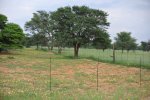 FenceAfricacattlegame_zps0b02108a-1024x685.jpg248.1 KB · Views: 132
FenceAfricacattlegame_zps0b02108a-1024x685.jpg248.1 KB · Views: 132 -
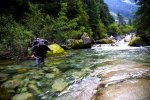 photo-4.jpg288.9 KB · Views: 112
photo-4.jpg288.9 KB · Views: 112 -
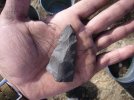 StoneBifaceFragment_zpsfa4b40dc.jpg65.8 KB · Views: 139
StoneBifaceFragment_zpsfa4b40dc.jpg65.8 KB · Views: 139 -
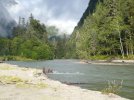 Kitlope-Rainforest-1024x768.jpg294.2 KB · Views: 126
Kitlope-Rainforest-1024x768.jpg294.2 KB · Views: 126 -
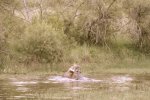 DSC_9331-1024x685.jpg247.5 KB · Views: 132
DSC_9331-1024x685.jpg247.5 KB · Views: 132 -
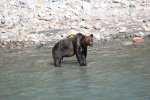 Grizzly-Kitlope.jpg182.3 KB · Views: 140
Grizzly-Kitlope.jpg182.3 KB · Views: 140 -
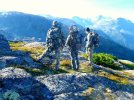 photo-5-6.jpg37.9 KB · Views: 111
photo-5-6.jpg37.9 KB · Views: 111 -
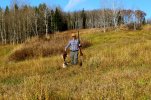 Cooper-I-and-Pheasant-PROPER-Colour-1024x682.jpg485.3 KB · Views: 149
Cooper-I-and-Pheasant-PROPER-Colour-1024x682.jpg485.3 KB · Views: 149 -
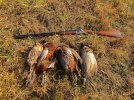 Gold-Label-and-4-Pheasants-PROPER-colour-1024x768.jpg717.3 KB · Views: 126
Gold-Label-and-4-Pheasants-PROPER-colour-1024x768.jpg717.3 KB · Views: 126 -
 Image2-1024x685.jpg145.2 KB · Views: 128
Image2-1024x685.jpg145.2 KB · Views: 128 -
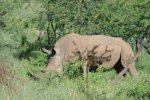 DSC_8500-1024x685.jpg298.1 KB · Views: 145
DSC_8500-1024x685.jpg298.1 KB · Views: 145
Last edited by a moderator:


